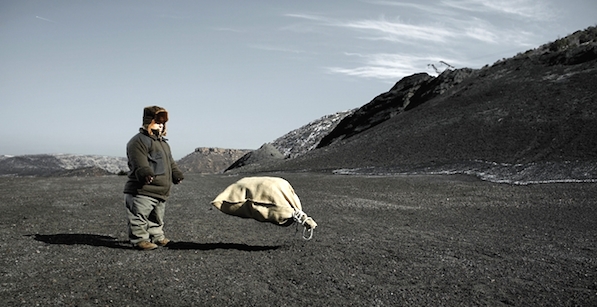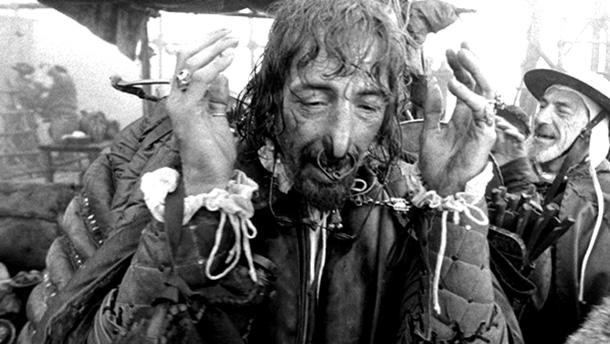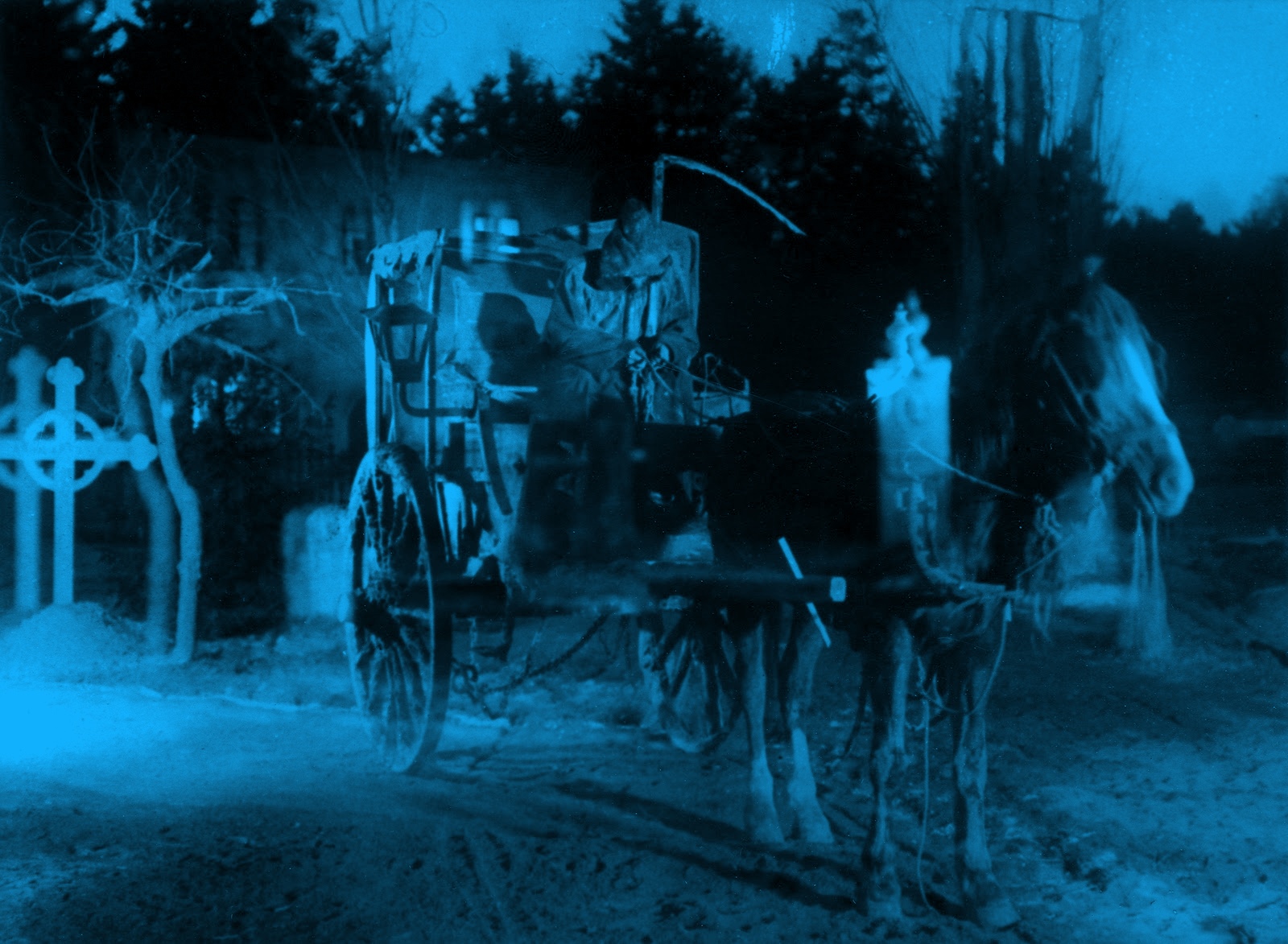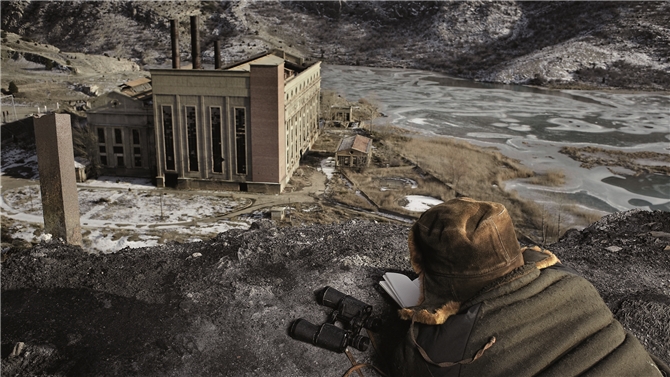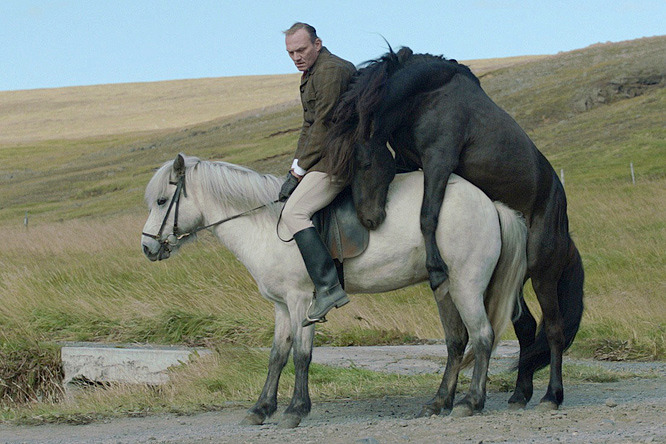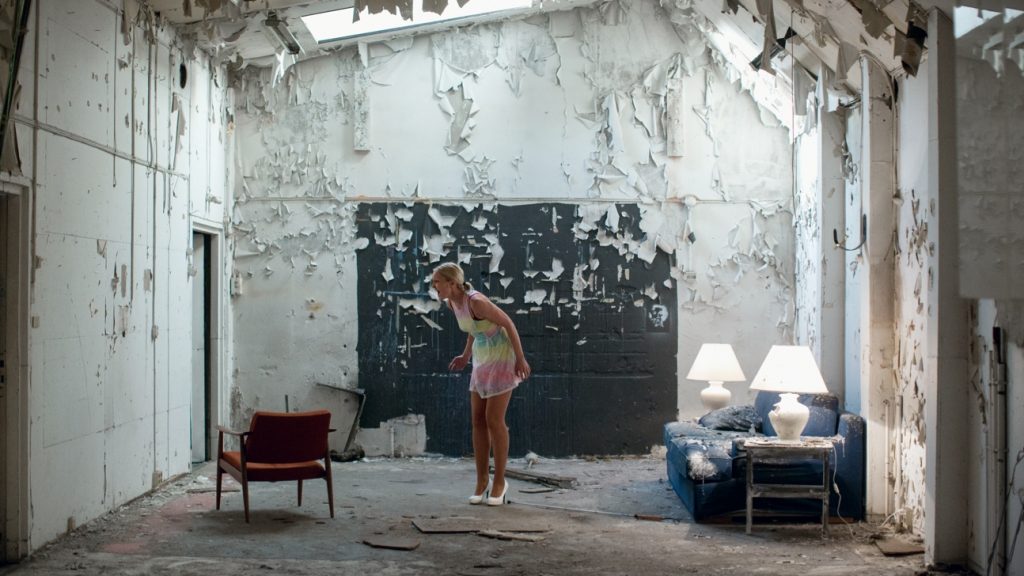A pimpled adolescent in the ever-expanding festival scene, CPH PIX is a small but cherished entry on the Scandinavian film calendar. It’s also an all-encompassing one, with the two-week film festival taking over virtually all of the capital city’s cinemas and a sizable chunk of the national cultural press. Unlike its venerable, genre-busting sister spectacle, CPH:DOX, PIX sticks to its populist intentions, with the programmers unapologetically scouring the bigger festivals to find the cream of the world cinema crop and bring them to the big screen for local cineastes.
A festival where the “less is more” adage does not apply, the elaborate program boasts over 150 features of drastically verging quality, from Pirjo Honkasalo’s gorgeous B&W TIFF favorite, Concrete Night, to Kim Ki-Duk’s banal attempt to prostrate his audience with the phallus-munching farce Moebius. A bit of quality control wouldn’t go a miss here, especially when the guilelessly presumptuous scale of the program means that most of the films on show (the late Alexei German’s viscerally explosive Hard to be a God being an example worthy of a big audience) only managing to half-fill Copenhagen’s opulent auditoriums.
Despite pushing above its weight and lacking the industry eminence to pull-in world exclusive premieres, PIX is worth commending for the ingenuity of its 17 sub-sections (again, perhaps a culling of a few wouldn’t go amiss) which include a midnight screening series of pulpy genre movies (‘Thrills & Kills’) and an exhaustive retrospective of the visiting Chicagoan director William “Hurricane Billy” Friedkin.
Another such component that has proved fruitful this year—both in regard to prestige and ticket sales—is the slew of live events. The most noteworthy so far has seen a collision between the Scandinavian cinema of yore and a daring artist of the new age, with Victor Sjöström’s 1921 silent movie The Phantom Carriage screened with musical accompaniment from local avant-garde musician Loke Rahbek for one night only. This forgotten classic plays out like a prescient It’s A Wonderful Life, with a debauched misanthrope visited by the Grim Reaper on New Year’s Eve and forced to see the life, wife and children he has spent years neglecting. A noted favorite of Ingmar Bergman, The Phantom Carriage can be seen as a monumental precursor to the bleak and blackly comic tropes found in Scandinavian cinema today. The accompanying live music was otherworldly. Featuring cacophonous synths, moody guitar melodies and compressed screaming (I think), Rahbek’s score was both terrifying and beautiful in equal measure; an erratic bedfellow to David Lynch and Alan Splet’s sound design on 1977’s Eraserhead. The whole ninety-minute audiovisual experience proved divisive, with half of the clientele abandoning the Grand Theater, while others–myself included–left sinking in their seats, deafened and flabbergasted by the audacity of the experience.
Of a smaller but no less intriguing note is CPH PIX’s “On Location” series, which takes movies both old and new and screens them in places intrinsic to their storyline. It’s an easy, but enjoyable gimmick, which illustrates not only how sensorily enriched communal film experiences can be away from the silver screen, but how much leverage PIX has on Copenhagen inhabitants and the city infrastructure en masse. So far, festivalgoers were treated to a free screening of Friedkin’s cruelly overlooked S&M thriller Cruising in one of the cities most notorious after dark hook-up public parks, Ørestadsparken; as well as a screening of queercore veteran Bruce LaBruce’s shoddily acted, geriatric romance Gerontophilia in a nursing home for the elderly. Perhaps necessary to drown away the moral dubiousness of those prior unsavory spectacles, Wednesday’s presentation of Joe Swanberg’s latest and greatest post-mumblecore dramedy Drinking Buddies in a Danish microbrewery has proved the biggest hit of the festival, selling out even before the festival began back on April 3.
Top of the On Location pile is a screening of the IFFR-funded The Distance, the latest from Catalonian visual artist and co-founder of the Sónar electronic music festival, Sergio Caballero. The setting of a dilapidated factory couldn’t have been more appropriate for the movie, which focuses on the quest of three telekinetic Russian dwarves enlisted by a woebegone artist to steal a mysterious curio known obliquely as “The Distance” from an abandoned power plant somewhere in the Siberian mountains.
Following his Monty Python-meets-Luis Buñuel riffing debut, Finisterrae–featuring two white-sheet clad ghosts on the Way of St. James pilgrimage across Europe–The Distance is a predictably absurd, but lovingly orchestrated riff on the sacred art-films labyrinthian dichotomy between space and time, most notably emblazoned in Tarkovsky’s 1979 masterpiece Stalker.
An often frustratingly opaque endeavor, the puckish Caballero is unafraid to transport the audience into a stratosphere where cinematic logic or sense no longer applies. But, then again, why should it? Hilarious, jarring and bewildering, The Distance is an oddity hard to quantify with words. It left audiences bewildered in the cavernous makeshift-screening arena, which now took the guise of a place that could have been conceived in Caballero’s own, beautifully odd mind.
Other than the unveiling of the new efforts of the Danish Film Institute’s ‘New Danish Screen’ program, plus the shorts from the leading independent film school in Denmark, Super 16, the only other world premiere in this year’s PIX film program was the directorial debut of one of the school’s recent graduates.
Picking up from where Michael Noer’s superior social realism drama Northwest from last year left off, Fenar Ahman’s Flow (Ækte Vare) is an unflinching portrayal of life in the housing projects of Denmark. The regular gangster types are replaced with a clan of young rappers aspiring for their big breakthrough. But when the most promising of the group, Mikael (a towering performance from newcomer Kian Rosenberg Larsson), is hired as a ghostwriter by an established rapper in the big league, his loyalty to his old friends is threatened.
Ahman shows a dexterous ability to make a small budget film feel lavishly cinematic. Along with the skilled cinematographer Niels A. Hansen, he utilizes restless tracking shots, unnerving nightclub close-ups and frenzied cutting rhythms to emulate the structure, or ‘flow’ of hip-hop music. For all its accomplished textures, however, the narrative lacks a similar vigor, suffering from post-8 Mile familiarity that so often cripples the conceit of regular hip-hop movies, let alone those created in the comparatively safe, neoliberal microcosm of Denmark.
PIX evidently imbues a nonpartisan approach to programming a festival, yet the winners of the two award categories were serendipitously productions hailing from Nordic countries. While it didn’t make the cut as Iceland’s entry into the 86th Academy Awards’ Best Foreign Language Film category, renowned local theatre director Benedikt Erlingsson’s Of Horses and Men managed to pick up the festival’s national newspaper sponsored audience gong, the Politiken Publikumspris. Already a gong winner at last year’s Tokyo, San Sebastián and Tallinn Black Nights festivals, the vignette-comprised feature was such a hot ticket at this year’s PIX that yours truly couldn’t get around to witnessing it, although it is reportedly stupendous, with Indiewire’s Carlos Aguilar hailing it as a “visually luscious, utterly original tragicomedy.”
Following big wins and high praise from Berlinale and Sundance earlier this year, the acclaimed screenwriter Eskil Vogt’s first feature as director is a deserving winner of this year’s New Talent Grand PIX trophy and the €10,000 prize (which, unfortunately, doesn’t amount too all that much in his native Norway).
Of all the twenty-six films I’d seen at the time of this writing, Blind was an irrepressible favorite, exemplar of the exciting undercurrent of valiantly artful, unashamedly intelligent dramas that comprise the “Norwegian New Wave”, alongside 90 Minutes, Reprise and Oslo, August 31st (the last two of which Vogt co-penned).
It’s the subtle, yet effusively crafted story of Ingrid (Ellen Dorrit Petersen), a once zestful character turned into a stay-at-home hermit by her recently diagnosed terminal blindness. While her husband comes and goes, she is left much alone to (re)explore the confines of her apartment, repressed desires and wild imagination.
Unraveling its thorny narrative would do Vogt’s hard work a great disservice. Suffice to say that he equips himself with the literary conceit of an omniscient, unreliable narrator to engulf the audience in a place of endless narrative duplicitousness and intrigue. Some critics have taken Vogt’s shrewdness and made credulous comparisons with Charlie Kaufman’s Adaptation and Synecdoche, New York. Ultimately though, the Norwegian adroitly carves out a cinematic language that is entirely his own, allowing Blind to shift between moments of heartrending pathos, sexed-up thrills and wicked wit while never dropping the figurative dramatic ball. Bestowing the film with the Grand PIX award may have been a bit of a pat on the back for a Scandinavian native, but when the resulting film is this accomplished for first time effort, it’s certainly something worth celebrating.

